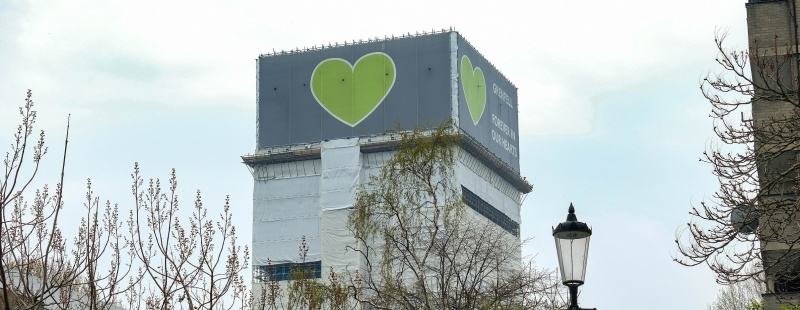Four years after the Grenfell Tower disaster, we consider the aftermath and legal changes arising from the catastrophic blaze, which sadly killed 72 people and made almost 200 households in both the Grenfell Tower and surrounding area uninhabitable.
A public inquiry into the disaster was ordered by Theresa May the day after the fire and is ongoing.
Bereaved family members, survivors who were made homeless, and emergency service workers including police officers, fire fighters and paramedics ('the Claimants') have lodged a multimillion-pound personal injury claim in the High Court against 23 organisations including Aronic (the US company that made cladding), Rydon (the main contractor) and Kensington and Chelsea Council, (landlord of the 42-stoery council block) ('the Defendants'). The Claimants are seeking compensation for a plethora of losses and damages including but not limited to psychiatric and physical injuries, the cost of alternative accommodation and loss of earnings.
The Claimants allege that the Defendants' failings 'separately and cumulatively led to or contributed to the disaster, including the failings of their employees or agents, for which they are vicariously liable'. This means the Claimants are alleging the Defendants are responsible for the negligent actions of their employees or agents and should be liable to pay compensation for any loss of damages suffered by the Claimants as a direct consequence of the fire.
The case will be handled by Ms Justice Barbara Fontaine, the senior master of the Queen's Bench division. It is the first time Arconic, have faced court action in the UK over the deaths.
Liability has not yet been admitted by the Defendants. The hearing is expected to result in a stay of proceedings of up to nine months, to allow time to explore out of court settlements and for further evidence to emerge from the public inquiry.
Personal injury claims are frequently complex, and it is important that anyone considering such a claim seeks advice at the earliest opportunity. For more information on how to make a claim, click here.
Cladding
The Grenfell disaster has also led to numerous professional negligence claims against contractors who installed defective cladding to other high-rise blocks around the UK, and applications by landlords to the Property Tribunal for permission to recover the cost of installing new cladding from leaseholders.
The professional negligence claims may take years to settle, leaving Landlords under a duty to undertake urgent fire safety works to replace the defective cladding without the benefit of compensation from the original contractors. Landlords are therefore seeking contribution for the works from leaseholders through service charges, increasing quarterly payments to hundreds of thousands of pounds.
Under the Landlord and Tenant Act 1985 and the Leasehold and Commonhold Reform Act 2002, if major works to residential blocks of flats exceed a contribution of £250 per leaseholder (which is likely to be the case for replacement cladding works) landlords are obliged to follow a lengthy consultation process with its leaseholders before works start. If landlords fail to do so, their ability to recover payment from the leaseholders through service charges may be limited to £250 per property, leading to a large bill for landlords.
Alternatively, landlords can seek permission from the Property Tribunal to dispense with the lengthy consultation process and recover the cost from the leaseholders, limiting their outlay.
Service charge disputes and professional negligence claims are frequently complex, and it is important that anyone considering such a claim seeks advice at the earliest opportunity. Whether you are a landlord or tenant our litigation team are here to help you.
To arrange an appointment or for more information, please contact our dedicated Client Relations Team on 01603 693500 or email us using the 'Make an Enquiry' form on our website.
We can carry out telephone or video appointments, reducing the need for face-to-face meetings in accordance with social distancing guidelines. Face-to-face meetings are available by appointment at our Norwich, North Walsham, and Sheringham offices.
*This article is provided for general information purposes only and does not constitute legal advice or other professional advice.
